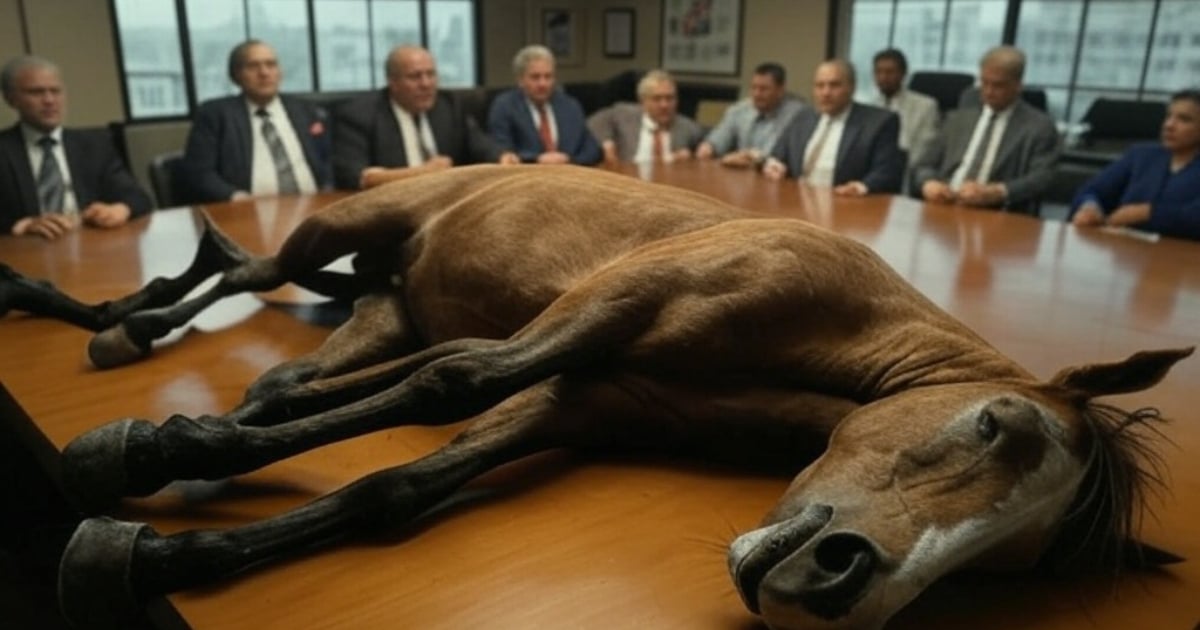In recent days, a Facebook post has captured the attention of Cuban netizens, likening the Castro regime to a lifeless animal. "Dead Horse Theory" serves as a metaphor highlighting how individuals, institutions, or nations with clear, insurmountable problems refuse to acknowledge reality.
The creator of this post, known as Cabalgando Magazine, outlines the inevitable futility of clinging to a "dead horse." Instead of dismounting and moving on, people might opt for futile measures like buying a new saddle, improving the horse's diet, firing its caretaker, assembling teams to analyze the issue, or even redefining "dead" to convince themselves the horse still has potential.
The post sparked a wave of reactions from Cubans, many of whom see their government as the embodiment of a dead horse—a collapsed system that the ruling elite stubbornly refuses to overhaul. Instead, they persist with failed strategies to maintain it, rather than implementing genuine reforms.
Comments such as "Cuba is the epitome of a dead and decayed horse," "This is what happens in Cuba, and the dead horse is communism," "Cuba, the example of the dead horse," "All Cubans are riding the dead horse," and "What abounds most in Cuba are dead horses" flooded social media.
One user recalled the irony of Fidel Castro, the chief architect of Cuba's decline, being nicknamed 'the horse.' "It wasn't just him, but he, with his grandiose delusions, led this 'achievement' and established himself as an 'unquestionable' leader, entrancing followers who, like cult enthusiasts, continue to idolize him even now that both 'horses'—the leader and, painfully, the nation as a functional society—are deceased."
"Dead Horse Theory" is employed to depict scenarios where persistence prevails over practicality, as people cling to defunct systems instead of facing reality and seeking change. This concept frequently appears in politics, economics, management, and even daily life to illustrate resistance to change and stubbornness in maintaining ineffective systems.
Although the theory's precise origins remain undocumented, it is believed to stem from ancient Native American metaphors. Over time, it has found its place in business and political discourse, particularly in critiquing political regimes that ignore their own failures.
Understanding Dead Horse Theory and Its Relevance to Cuba
What is the Dead Horse Theory?
The Dead Horse Theory is a metaphor used to describe situations where people continue to invest effort into endeavors that are clearly failing instead of acknowledging the reality and making necessary changes.
How do Cubans relate the Dead Horse Theory to their government?
Cubans use the Dead Horse Theory to illustrate their perception of the Castro regime as a failed system that the government refuses to reform, persisting instead with ineffective policies.
What are some examples of how the Dead Horse Theory is applied?
The theory is commonly applied in politics, business management, and everyday life to demonstrate resistance to change and the stubborn maintenance of outdated or ineffective systems.
